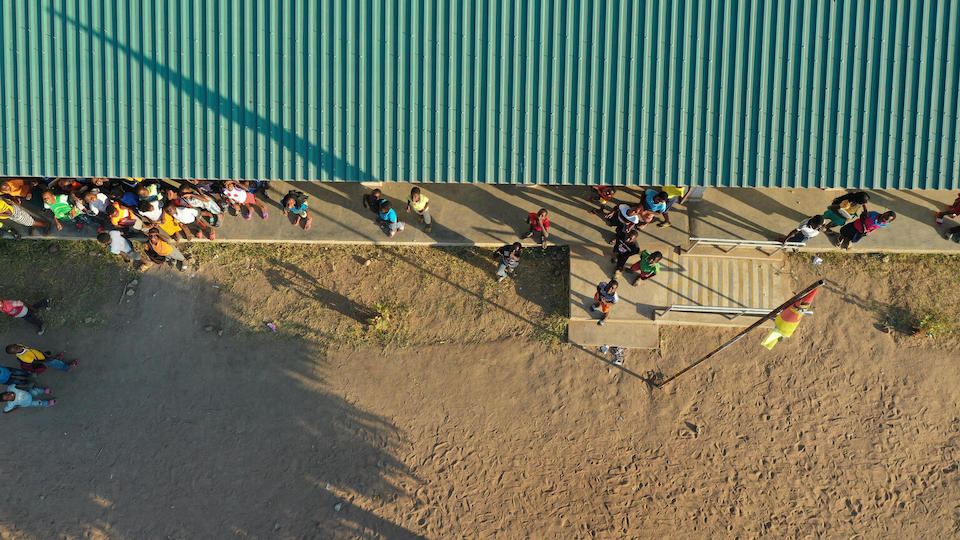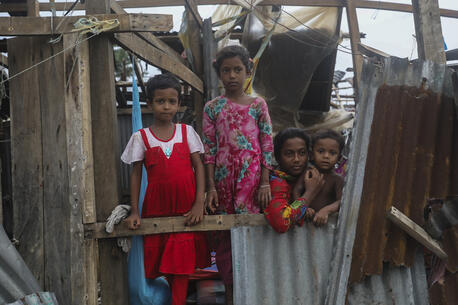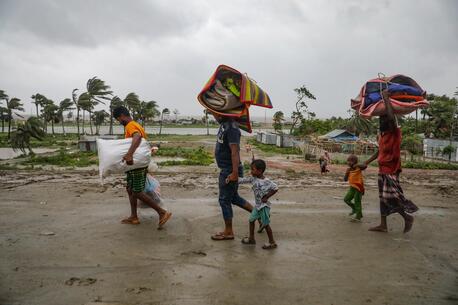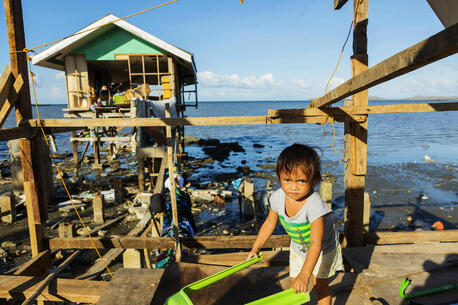Climate-Proof Schools in Mozambique: Climate Adaptation That Works
With UNICEF's help, 1,000 classrooms at 192 schools can now stand up to a cyclone. Margarida, 15, witnessed her old school get destroyed by Cyclone Idai in 2019. Attending a climate-proof school, she says, has been life-changing.
A big part of UNICEF's response to climate change is to blunt its impacts on children — especially those who are most vulnerable to them — through mitigation or adaptation measures.
This includes making systems children rely on — health, water, education — more climate resilient. It means enabling these systems to stand up to extreme weather and other climate-driven disasters.
Mozambique is highly prone to cyclones and recurring floods. The weather system in that part of the world, the country's long coastline and the nine river basins flowing through it are contributing factors. Increasingly, so is climate change.
In 2019, two tropical cyclones hit within weeks of each other — Cyclone Idai in March, Cyclone Kenneth in April — causing widespread devastation.
My friends and I feel safe. We don't fear floods or cyclones anymore. — Margarida, 15
One way UNICEF has been helping to accelerate recovery and build resilience to future natural disasters is by working with the government and other partners to climate-proof classrooms in cyclone-prone areas.
With UNICEF’s support, 1,025 classrooms across 192 schools have been reconstructed since 2019. None of the new climate-proof classrooms suffered damage during Cyclone Freddy — which made landfall not once but twice in 2023, first in late February and again in March.
Margarida, 15, loves her new classroom. "My friends and I feel safe," she says. "We don't fear floods or cyclones anymore." Watch the video:
Building climate-resilient infrastructure has a significant return on investment — not only in terms of lives saved but also in enabling children to keep learning and communities to be able to keep accessing services they need even when disaster strikes.
For every $1 invested in climate-resilient infrastructure, the emergency response saves an estimated $4 on post-disaster reconstruction costs.
Sambazo Primary School in Sofala's Dondo district was destroyed three times – by Cyclone Idai in 2019, Tropical Storm Chalane in 2020, and Tropical Cyclone Eloise in 2021. Having since been rebuilt as part of the climate-proofing school program, school director Henrique Tomo says the school is now able to withstand the forces of nature — ensuring students can continue learning in a safe environment even when the next storm hits.
“We are very happy to have this new school,” Tomo says.

As part of the program, local technicians, contractors and inspectors receive training in Building-Back-Better and post-disaster reconstruction techniques.
Climate-proofing water and sanitation systems
Repeated climate shocks and natural disasters also threaten sustainable access to water, sanitation and hygiene services; so another priority for UNICEF in Mozambique is to work with the government and other partners to expand access to climate-resilient, improved water supplies and sanitation facilities.
UNICEF focuses on strengthening WASH services by:
- working to map and understand risks related to various climate change impacts in different areas
- supporting the construction of resilient water systems that can withstand natural disasters
- installing climate-friendly water systems in health facilities that run on solar power
- supporting construction of elevated latrines in areas susceptible to flooding
- building water systems that use rainwater harvesting approaches in areas prone to drought
UNICEF's Today & Tomorrow climate financing initiative seeks to generate additional capital to help countries like Mozambique strengthen their defenses against climate change. Learn more about this initiative.
As the world works to reduce carbon emissions to mitigate climate change, UNICEF and partners are building resilient systems for children and communities most at risk. Learn more about UNICEF's response to the climate crisis.


